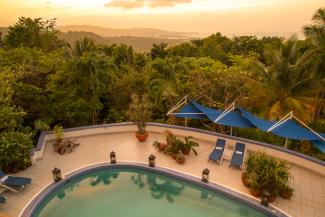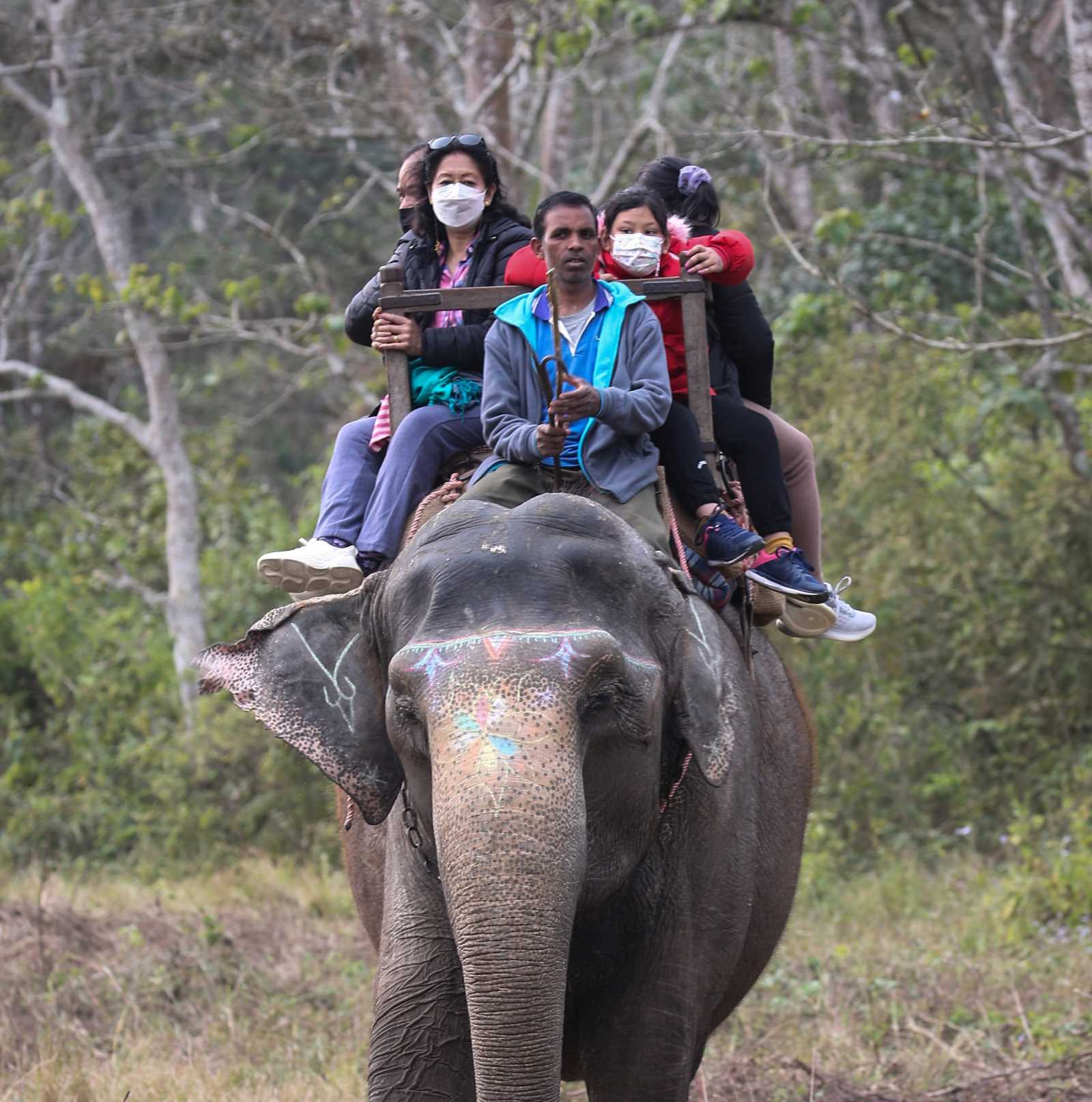Hotels
Benefit the host community

Tourism has three different kinds of impacts: on the natural environment, on local communities and on the economy. The impacts can be either negative or positive, depending on how the industry has been developed. In any case, tourists who stay at a hotel have a bearing on the larger environment of the destination. That is why I manage my hotel in an eco-friendly and socially equitable manner.
According to a study by Oxford Economics, tourism in Jamaica drives:
- 15 % of all construction,
- 10 % of the finance and banking sector,
- 20 % of manufacturing and
- 21 % of both utilities and agriculture/fishing.
Jamaican beaches are severely being eroded due to the construction of too many hotels. The building density has become too high in close proximity to the sea. Valuable mangroves, which served a critical role in balancing, maintaining and securing the shoreline, have been replaced by hotel facilities.
An example for coastal degradation is the area called Pear Tree Bottom on Jamaica’s north coast. It used to be an ecologically significant coastal and marine wild-life habitat, yet a large hotel chain received approval by the Natural Resources Conservation Authority for constructing a hotel in this location. The decision was legally challenged by environmental groups. The activists argued that government agencies had submitted incomplete documents and restricted public access to relevant information in the process. Nonetheless, the building permission and operating license were granted.
Moreover, environmentalists found out that the hotel was pumping raw sewage out to sea. As the coast is becoming degraded and the water is being polluted, local people’s traditional livelihoods such as fishing suffer. Locals are now excluded from accessing the hotel’s property. As a result, they are denied access to the beach and river at Pear Tree Bottom, a popular and traditional recreation spot. In such a context, frustration and hostility towards developers and tourists are no surprise.
Unbalanced development
While tourism offers opportunities in terms of investments, employment and skills training, indiscriminate development can lead to degradation of sensitive landscapes and cause social and environmental problems through over-use and over-development. Despite the overarching impacts of the industry, tourism development in the Caribbean to date has focused entirely on issues such as foreign-exchange revenues, income generation and employment effects. Whether the sector is fulfilling the objective of benefiting both the host communities and the visitors, is rarely considered.
There will always be some negative impacts, and a balance must be struck. The host communities deserve a good standard of life, and visitors’ experience should be one of enjoyable learning. However, policy makers pay attention to the guests only. Unfortunately, a large percentage of the money generated through tourism stays in the visitors’ home countries. It is raked in by tour operators, airlines, marketing and advertising agencies. They are all involved in getting tourists to the destinations, but offer no skilled jobs to the host country.
Often, the big foreign companies even exploit local resources. Many big chain hotels provide only low-income jobs in Jamaica and keep management in foreign hands. Large all-inclusive resorts are notorious in particular for paying only minimum wages and letting the workers complement their meagre incomes through tips.
Generally speaking, market forces favour the foreign visitors. Even though the costs of living are high in the Caribbean, the prices that tourists pay are kept as low as possible. Accordingly, employees in the host communities cannot earn a fair living. Many communities remain deprived of essential resources such as water, which is diverted to big hotel resorts and cruise ships.
With a capacity of up to 6,000 passengers, the big new cruise ships have become like small cities. They have numerous swimming pools and saunas. The daily water consumption of each of these ships amounts to approximately 3 million litres. Some of it is used in showers and swimming pools, but a lot is used in kitchens, laundries and toilets too. Some modern cruise ships can recycle water or have desalination devices to produce drinking water from seawater. Nonetheless, when cruise ships fill up water on the shore, valuable freshwater is diverted from the community concerned.
The challenge of sustainability
Luckily consumer interest in sustainable tourism is growing. Operators used to fear that higher costs would hurt them, but there is a trend of customers accepting that positive environmental and social impacts are inherently related to product quality.
Many of the practices required to operate a hotel in a sustainable manner are not visible at first glance however (see box), so guests do not understand why these hotels are expensive. They may be willing to pay more when buying organic food or renting a hybrid car, but in their perception, a hotel should be cheap. Many travellers do not accept that staying at a small, intimate and sustainably managed hotel should cost as much as staying at a large resort with multiple swimming pools, restaurants and other facilities.
It is difficult to communicate the value of intangible assets including social equity. Moreover, environment-friendly infrastructure is not always self-evident either. Communication is key to understanding and appreciating what is entailed in sustainable tourism. The challenge is to convey these things convincingly.
The most important aspect, of course, is communication with the tourists before, during and after the trip. They must be made aware of their part in the sustainability of the destination. They must understand what sustainable tourism is about. The goal is to design things in a way to provide equitable benefits to all stakeholders.
More than equipment
In this sense, sustainability goes beyond the installation of technical equipment. It requires an ethic of caring and creative thinking. Practical solutions are needed to solve all kinds of problems, based on common sense and serving the common interest.
Marketing products and services to the growing number of people who appreciate the values of sustainable tourism is very difficult and costly. This is especially so when you want to convey that responsible operations do not require guests to sacrifice on comfort or that “eco” is not necessarily rustic. Sustainability is about minimising waste, maximising energy efficiency and providing great quality in terms of health and well-being. It is about consciously opting to support community organisations and small producers like local farms, rather than buying from large corporations. This way, economic partnerships are being built which profit the local community, but of course, this involves more work and effort, and supplies are sometimes irregular.
One benefit of operating sustainably is the knowledge that we are doing the right thing in regard to climate change, resource management and environmental preservation. Moreover, there are cost benefits thanks to greater efficiency. In addition, there is the personal satisfaction of giving benefits to the host community and contributing to its development in a positive manner. Improving the quality of the environment we live in improves staff motivation and retention. It also serves community relations. Sustainability means to ensure that local staff can enjoy the security of a fair wage and not depend on tips. The fact that one only uses natural, safe cleaning agents and no dangerous chemicals is a health benefit for the staff as well.
Despite first-time guests basing their decisions primarily on location, amenities and service, customer loyalty may increase once they have experienced a hotel which has demonstrated a level of environmental commitment. It is very satisfying to learn from guests that their experience with us has motivated them to implement some of the best practices they observed. If we can contribute to a positive change, then it makes our work worthwhile and rewarding.
Shireen Aga is manager of the Mocking Bird Hill Hotel in Port Antonio, Jamaica, and co-founder of GAIA Consulting and Coaching for Change.
shireen@hotelmockingbirdhill.com
Links:
Mocking Bird Hill Hotel:
http://www.hotelmockingbirdhill.com/
GAIA Consulting:
http://www.gaia.fi











